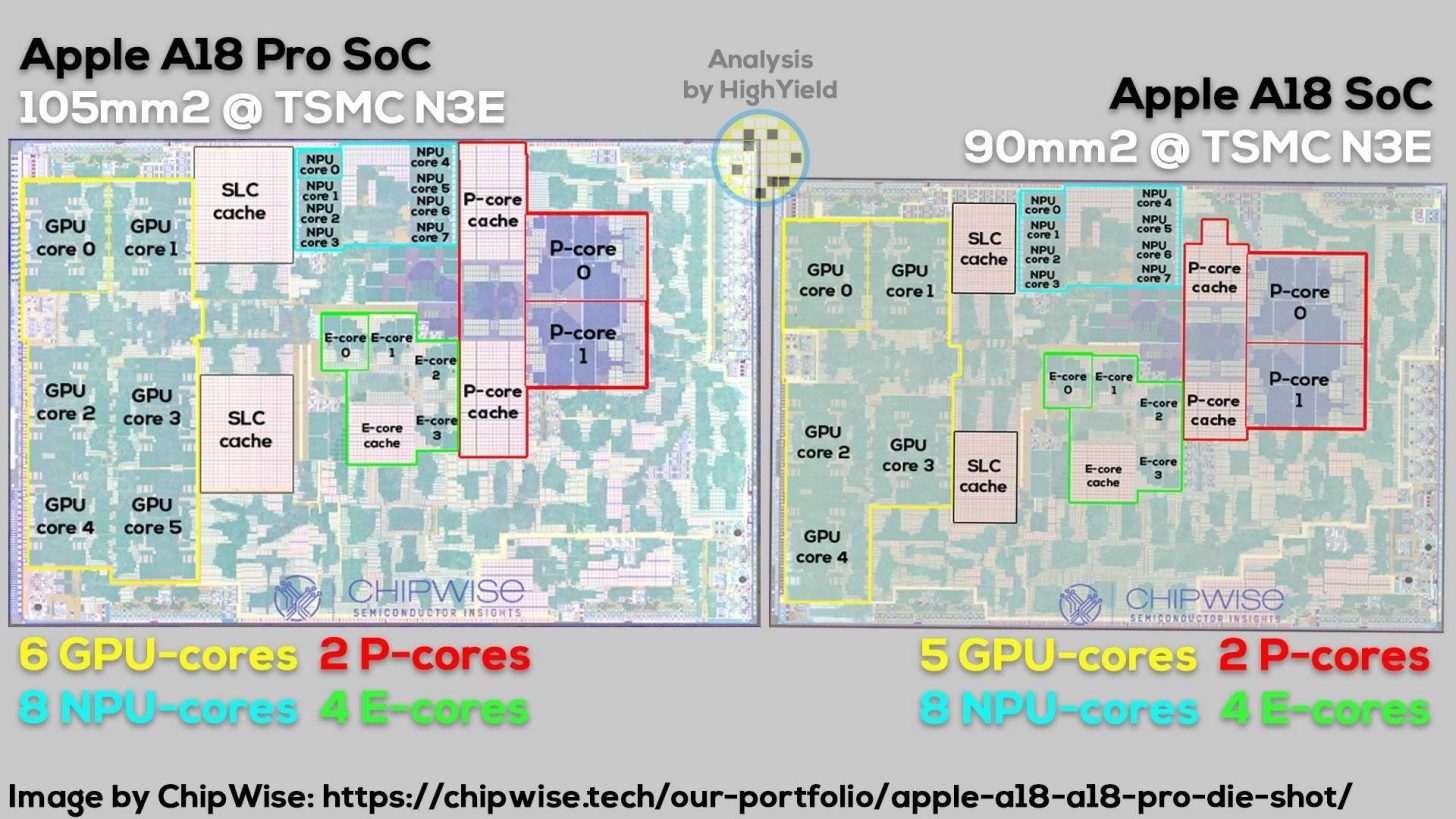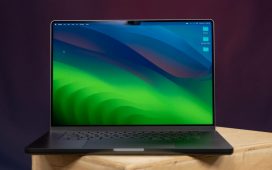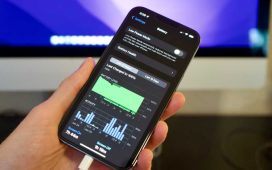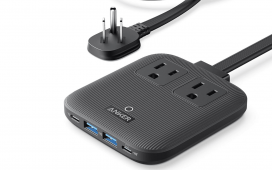A die shot comparison of the A18 and A18 Pro was revealed yesterday, making it the first time that Apple’s second-generation 3nm chipsets powering the iPhone 16 models were examined with a closer eye. Unfortunately, the lack of identification meant we could not deduce which component was present on which part of the two SoCs, so it was difficult to conclude the differences between them. Thankfully, we get a closer look at the A18 and A18 Pro, revealing their physical die size measurements and so much more.
New comparison reveals that the A18 might not be based on the A18 Pro, and both units could be entirely different
A deeper inspection by High Yield reveals that the A18 Pro has a 105mm² die size, while the A18 measures 90mm². A bigger die allows Apple to add a larger SLC cache and an additional GPU core, which you can clearly see in the comparison. As most of you know, a bigger cache can result in improved performance, which is why, in some benchmarks, the A18 Pro has the upper hand despite featuring the same CPU cluster as the A18 and only being separated by a single GPU core.
In the thread on X, it is mentioned that these die shots are clear proof that Apple did not design the A18 to be based on the A18 Pro and that both are different chips. It should also be noted that the A17 Pro is bigger than the SoC powering the iPhone 16 and iPhone 16 Plus as it measures 103.8mm², making it slightly smaller than the A18 Pro. If you noticed, during Apple’s official announcement, the company did not reveal the transistor count of both chipsets, and that is because TSMC’s latest 3nm ‘N3E’ node reportedly has a lower density than the N3B variant.

It is highly possible that Apple had to increase the A18 Pro’s die size to add a higher transistor count compared to the A17 Pro, but that information is currently kept in the dark. Looking at what Apple has accomplished, it is no surprise that in-depth reviewer Geekerwan has concluded that the A18 Pro is the fastest mobile chipset on the planet right now, just falling behind Apple’s significantly powerful M2 and M4.
News Source: High Yield










